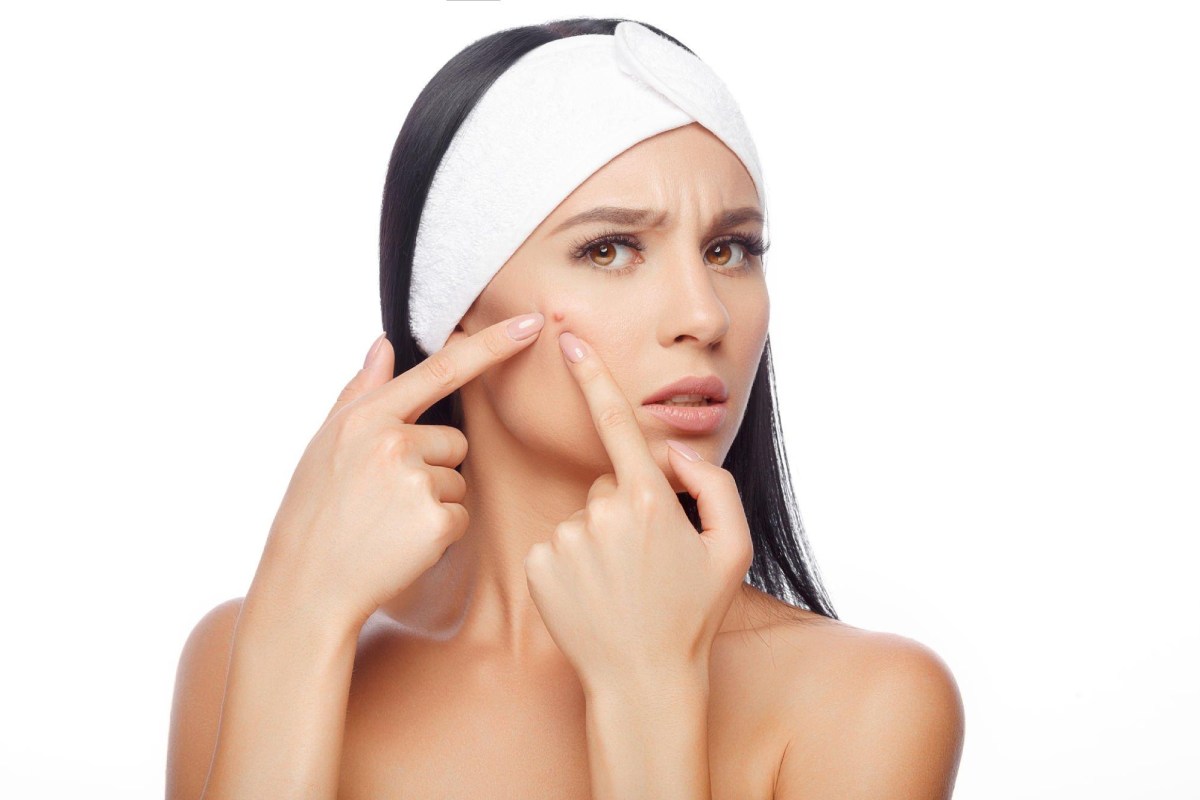Acne breakouts can often seem completely random and unavoidable. But what if you learned that some of your favorite skincare products were causing your skin woes? This is an unfortunately common scenario for people with blemish-prone skin. Many cosmetic formulations contain irritating or pore-clogging ingredients that can cause persistent breakouts. Here are some of the common ingredients to look for and avoid.
Table of Contents
Why Some Ingredients Cause Breakouts
Some topical ingredients cause breakouts by clogging your pores. Others irritate the skin and cause an inflammatory response that can stimulate the development of angry-looking red pustules. It’s important to avoid either scenario if you’re concerned about keeping your skin as healthy and blemish-free as possible. If you do experience a breakout, have acne medication on-hand to treat it. The quicker you treat the issue, the faster your skin can return to normal.
The best way to identify acne-triggering ingredients is to study the labels of the skincare products you buy. Too many people buy first and look at labels later. Here are some of the most common blemish-causing skincare ingredients to keep an eye out for. Avoid purchasing any items that have one or more of these listed on the label.
Synthetic Perfumes
It feels good to lather nice-smelling lotions and serums onto your face. But the fragrances used in many skin care formulations can be irritating to sensitive skin. They smell nice, but synthetic fragrances often contain dozens of inflammatory chemicals. These chemicals can wreak havoc on your skin and lead to acne. Even products containing “natural fragrances” should be avoided whenever possible because perfume of any kind can be a major source of breakouts.
Mineral Oil
Mineral oil is a controversial ingredient in the skincare world. On one hand, it plays an important role in hydration and prevents moisture loss that can lead to dry, flaky skin. On the other hand, this petroleum-derived ingredient can trap dead cells, sweat, and impurities in the pores. As discussed earlier, clogged pores are a major source of breakouts. Therefore, anyone with acne-prone skin should avoid using mineral oil.
Sodium Lauryl Sulfate
Sodium lauryl sulfate is commonly added to cleansers because it is a surfactant. This means it is effective for removing oil and dirt from the skin. It also helps create that luxurious lather you’ve come to expect from your face wash. But SLS is a known skin irritant that can strip your skin of its natural oils, cause skin barrier disruption, and worsen existing breakouts. To avoid these unwanted side effects, look for cleansers without it.
Silicones
Silica is the main component of sand, and silicones are derived from it. Silicones form a barrier-like coating on the surface of the skin that’s air- and water-resistant. This makes them great for medical use because they can help improve scarring and heal wounds. But when it comes to your complexion, silicones may not be your friend. Like mineral oil, silicones can trap dead cells, dirt, and oils in your pores and increase your chances of developing acne flare-ups. It’s best to avoid applying this ingredient to your skin whenever possible.
Alcohol
It’s no secret that alcohol is a drying ingredient, so you may be wondering why it’s added to so many skincare products. From toners to exfoliators, many supposedly beneficial cosmetics feature alcohol as a star component. This is primarily because alcohols are so great at stripping impurities and excess oils from the skin. But they can also lead to inflammation-triggered acne breakouts. If you have sensitive skin, it’s best to look for alcohol-free options.
Lanolin
Lanolin is a waxy substance derived from sheep’s wool. It’s used in some skincare treatments to hydrate the skin by reducing water loss. Unfortunately, this ingredient has a high comedogenic rating, which means it tends to clog the pores and cause blemishes. It can also cause allergic reactions in some people. It’s best to avoid this ingredient and look for alternatives containing non-comedogenic moisturizers instead.
Coconut Oil
The health and beauty industries have been raving about coconut oil for a while. From celebrity endorsements to viral social media posts, the hype surrounding coconut oil has been hard to miss. This popular ingredient has a variety of evidence-based health benefits from reducing heart disease risk to boosting weight loss. But that doesn’t mean this highly comedogenic ingredient is great for your skin. Applying too much coconut oil — either by itself or in skincare formulations — can clog your pores. Avoid applying coconut oil to your skin if you deal with acne.
How to Avoid Pimple-Producing Products
Now that you know some of the top culprits behind skincare-related breakouts, it’s common to feel overwhelmed. So many popular skincare formulations contain one or more of the problem ingredients in this guide. You may be wondering if there are any options left for you. Don’t worry! There are skincare formulations that are specifically designed to be gentle on acne-prone skin. You just need to find them.
When purchasing skincare items, examine the packaging and list of ingredients. Look for products labeled as “non-comedogenic,” which means they’re less likely to block your pores. You should also avoid oil-based serums and moisturizers, and look for water-based options instead. If you still experience occasional breakouts despite your best efforts, manage them using spot treatments and medications.

